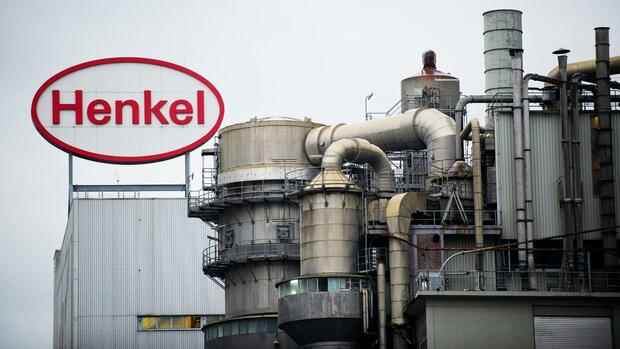The Dax group is reorganizing its consumer business.
(Photo: dpa)
Dusseldorf The consumer goods manufacturer Henkel plans to lay off 2,000 employees by the end of 2023 as part of its corporate restructuring. This was announced by the manufacturer of Persil, Pril and Pritt on Thursday morning. Above all, employees in the areas of sales and administration are affected. Overall, Henkel employs more than 52,000 people worldwide.
The background to this is the reorganization of Henkel’s consumer goods divisions. CEO Carsten Knobel wants to merge the ailing cosmetics business with the better-performing detergents and cleaning agents sector and its well-known brands such as Persil and Pril. The group employs 20,000 people worldwide in the affected divisions, 15 percent of them in Germany. In total, one tenth of the employees in this area have to leave.
Henkel is planning savings of EUR 500 million as a result of the conversion. Knobel expects faster decisions, more targeted innovations and more growth from the newly formed “Consumer Brands” unit.
In addition, Knobel expects synergies in the areas of administration, sales, marketing, production and logistics. This means that sales people from both company divisions no longer have to negotiate with the same customers, as was previously the case. In addition, Henkel wants to use the new division to make it easier to make acquisitions that do not fit either of the two areas.
Top jobs of the day
Find the best jobs now and
be notified by email.
Henkel’s cosmetics division has been weak for years. Analysts had repeatedly criticized that the business was too small and not profitable enough compared to competitors like L’Oréal. Most recently, Henkel only achieved a margin of 9.5 percent in this division. Competitors such as Beiersdorf or Unilever, who also offer luxury products and high-quality skin creams, continue to achieve double-digit values here.
After the conversion, Henkel stands on two pillars
After the conversion, which should be completed in 2023, Henkel will stand on two pillars of roughly the same size. The new, combined consumer goods business accounts for 52 percent of sales and 45 percent of earnings before interest and taxes (EBIT) in the 2021 figures. The adhesives division is significantly more profitable for Henkel than the sale of cosmetics or cleaning agents. In the adhesives business, the traditional Düsseldorf group is considered a leader.
“By merging, we will achieve significant synergies in many areas, which we also want to use to strengthen our profitability,” said Knobel. In the medium term, Henkel is aiming for organic sales growth of three to four percent for the Consumer Brands division and an adjusted return on sales in the mid tens of percent. The detergent business grew organically by 3.9 percent in 2021, and the cosmetics division by 1.4 percent.
In addition, Henkel announced that it would continue to muck out its portfolio. Henkel wants to shut down or sell businesses and brands that are not profitable or not growing fast enough. This applies to transactions with a sales volume of up to one billion euros.
In the cosmetics division alone, transactions worth 184 million euros are to be discontinued. By 2021, the company had already sold or discontinued brands with a sales volume of around 500 million euros, especially in the flagging personal care business.
Henkel is struggling with rising costs and the consequences of withdrawing from Russia
Henkel last laid off around 3,000 employees worldwide in 2008 as part of an austerity program. At that time, the management referred to rising raw material costs.
Henkel is suffering massively from these again: just last week, the group had to admit that it was making lower profits than planned in the current year. Henkel expects additional costs of around two billion euros due to rising raw material prices and additional costs for logistics.
Even during the Covid crisis, Henkel and its competitors were struggling with rising raw material costs and incomplete supply chains. The war in Ukraine and the resulting increase in energy prices have made the situation even worse.
In any case, Henkel is under pressure: For a long time, the group had held on to its Russian business. Henkel ended its activities in the country in mid-April. Henkel was invested in Russia like no other Dax group, achieved five percent of its group sales there, around one billion euros, and employs 2,500 people in eleven plants.
Last week, Henkel announced that it would withdraw from Belarus, which is an ally of Russia. Because of the withdrawal, Henkel expects “significant effects” on the finances, but cannot yet quantify them in more detail.
More: Henkel expects less profit – costs increase by two billion euros, share collapses

